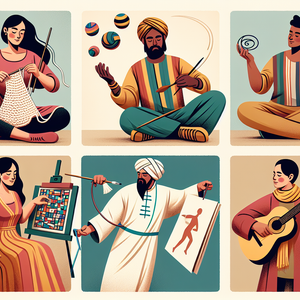The Evolution of OnlyFans: From Adult Content to Mainstream Celebrity Platform

OnlyFans was launched in 2016, primarily catering to adult content creators who sought a space to share exclusive material with paying subscribers. The platform's model allowed creators to monetize their content directly, bypassing traditional advertising and sponsorships that often dominate other social media platforms. This appeal was significant for many creators who were looking for financial independence and a way to connect more intimately with their audience. For instance, the platform's direct payment system allowed creators to earn significant income from their subscriber base, which was particularly beneficial for those in adult entertainment who often faced challenges in monetizing their work through conventional means. The initial success of OnlyFans was largely attributed to its ability to provide a safe, controlled environment for adult creators to share their content without the stigmatization commonly associated with the industry.
The Shift to Mainstream Acceptance
The turning point for OnlyFans came in 2020, coinciding with the global pandemic. As lockdowns forced people to stay at home, many turned to digital platforms for entertainment and connection. During this time, celebrities began to join OnlyFans, using the platform to share behind-the-scenes content, personal insights, and exclusive interactions with fans. Stars like Bella Thorne and Tyga garnered massive followings, helping to destigmatize the platform and broaden its appeal beyond adult content. Bella Thorne's launch on OnlyFans not only broke records for earnings in a single day but also changed the narrative surrounding the platform. As more mainstream personalities flocked to OnlyFans, it became evident that the platform could cater to a diverse range of creators—from fitness experts to chefs to artists. This influx of mainstream personalities has reshaped the narrative surrounding OnlyFans, transforming it into a viable option for creators across various industries.
Implications for Content Creation and Audience Engagement
The evolution of OnlyFans has significant implications for content creation and audience dynamics. First and foremost, it democratizes the creator economy, allowing individuals from various backgrounds to monetize their expertise, talents, and personalities. By providing direct access to fans, creators can cultivate genuine relationships, fostering a sense of community that traditional platforms often lack. Moreover, the subscription-based model empowers creators to set their pricing and maintain control over their content. This shift represents a move away from the advertising-driven economy that often exploits creators, allowing them to earn a sustainable living based on their audience's willingness to pay for exclusive content. However, this evolution is not without its challenges. As the platform grows, so does the competition among creators. Many must navigate the fine line between producing engaging content and maintaining their personal brand, often under the scrutiny of public perception. The spotlight that comes with fame can be a double-edged sword, as creators face both opportunities and the potential for backlash or judgment. For example, some creators have faced criticism for their content choices, leading to debates about artistic freedom versus societal norms.
The Future of OnlyFans
Looking ahead, the future of OnlyFans appears promising yet complicated. As it continues to attract diverse creators, the platform may further evolve into a hub for creative expression across various domains. This potential expansion could lead to new forms of content and collaboration, pushing the boundaries of what audiences can expect from digital platforms. However, the platform must also address the ethical considerations that come with its growth. Issues of exploitation, privacy, and the mental health of creators are paramount. As the lines blur between personal and professional lives, creating a safe environment for all users will be critical in ensuring the platform’s longevity and success. Additionally, as OnlyFans expands into new content categories, it must find ways to maintain the safety and integrity that originally attracted many creators to the platform.
OnlyFans has undergone a remarkable transformation from a niche adult content platform to a mainstream entity that champions creators from various backgrounds. This evolution reflects broader societal changes concerning content creation, audience engagement, and the monetization of personal expression. As OnlyFans continues to grow and diversify, it will undoubtedly shape the future of digital content, offering new opportunities and challenges for creators and consumers alike. The journey of OnlyFans is a testament to the power of adaptability in the ever-changing digital landscape, and it will be fascinating to see how it continues to evolve in the years to come.
Content Marketing Manager
Responsibilities
Develop and implement content strategies that align with the company's overall marketing goals.
Analyze content performance metrics to optimize engagement and reach across platforms.
Collaborate with influencers and creators to produce high-quality content that resonates with target audiences.
Skills
SEO
social media marketing
analytics tools (e.g., Google Analytics)
excellent written communication.
Employers
Digital marketing agencies
entertainment companies
brands with a strong online presence.
Social Media Strategist
Responsibilities
Design and execute social media campaigns to increase brand awareness and engagement.
Monitor trends and audience behavior to tailor content specifically for different platforms.
Engage with followers, responding to comments and messages to foster community.
Skills
Proficiency in social media management tools (e.g., Hootsuite, Buffer)
copywriting
strong understanding of platform algorithms.
Employers
Online content platforms
lifestyle brands
entertainment firms.
Influencer Partnerships Coordinator
Responsibilities
Identify and establish relationships with influencers and content creators relevant to the brand.
Negotiate partnership terms and manage campaign logistics to ensure alignment with brand objectives.
Track and report on the performance of influencer campaigns to refine future strategies.
Skills
Strong negotiation skills
project management
understanding of brand marketing.
Employers
Marketing agencies
consumer brands
social media platforms.
Video Content Producer
Responsibilities
Oversee the production of video content from concept development to post-production.
Collaborate with creators to ensure that their vision is reflected in the final product while adhering to brand guidelines.
Manage budgets, schedules, and resources effectively to deliver high-quality videos on time.
Skills
Proficiency in video editing software (e.g., Adobe Premiere, Final Cut Pro)
storytelling
project management.
Employers
Media companies
production studios
digital marketing firms.
Digital Community Manager
Responsibilities
Create and maintain a positive and engaging online presence across multiple platforms for the brand.
Foster user engagement by initiating discussions, responding to inquiries, and moderating content.
Develop strategies to grow the community and increase user loyalty and retention.
Skills
Strong interpersonal skills
familiarity with community management tools
understanding of audience dynamics.
Employers
Online content platforms
tech startups
e-commerce brands.


